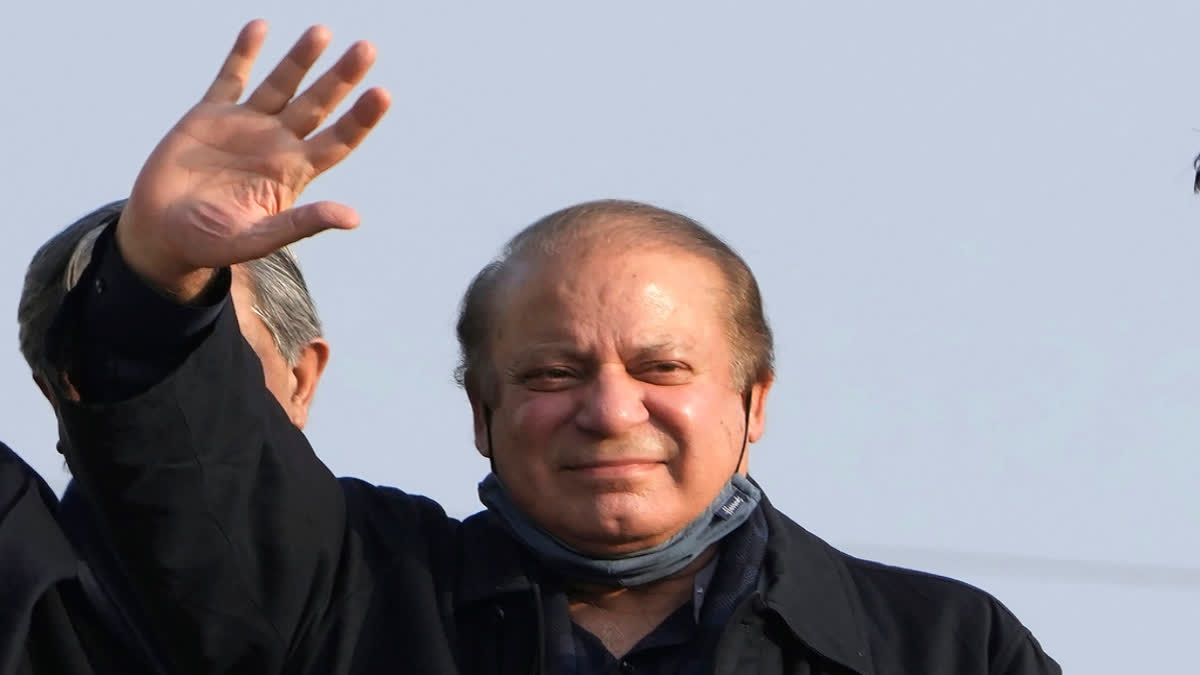New Delhi: As the political landscape in Pakistan undergoes a transformation following Thursday’s elections, the eyes of the international community are keenly fixed on the implications for India-Pakistan relations.
While elections often herald the possibility of diplomatic shifts and policy realignments, the fundamental dynamics between the two neighbouring nations may persist in a status quo. Despite the expected change in leadership and the nuanced challenges that will be faced by the newly elected government in Pakistan, the historical context, deeply rooted issues, and geopolitical complexities suggest that any immediate breakthrough or deterioration in bilateral relations between India and Pakistan may remain elusive.
On Thursday, Pakistan held its 12th national general elections to usher in a new government amidst numerous crises in the nuclear-armed nation of 241 million. Media reports suggest that the Pakistan Muslim League-Nawaz (PML-N), led by former Prime Minister Nawaz Sharif, is anticipated to secure the position as the predominant party, with Bilawal Bhutto Zardari’s Pakistan People’s Party (PPP) likely to follow as a distant second. The Pakistan Tehreek-e-Insaf (PTI), led by cricketer-turned-politician and another former Prime Minister Imran Khan, is also expected to be a significant contender, along with various other political parties.
Speculations are rife about the relations between India and Pakistan if PML-N’s Nawaz Sharif returns to power. This is because PML-N manifesto ahead of the elections calls for improved relations with India.
“Relations with India would be anchored in mutual respect, a shared vision for regional stability, and economic growth,” the PML-N manifesto states. “Both nations need to engage in sustained diplomatic dialogue to address and mitigate regional tensions.” However, it comes with a rider that “primacy will be given to the resolution of disputes, especially that of Jammu and Kashmir”.
“Pakistan would strive for a balanced partnership, ensuring equitable opportunities for both sides,” the manifesto states. “Trade between India and Pakistan and connectivity within the SAARC (South Asian Association for Regional Cooperation) region, can open up new vistas for regional prosperity. Holding the much-delayed SAARC Summit in Islamabad, as had been promised by India, would be the concrete first step in putting the regional cooperation policy back on track.”
The SAARC is a regional intergovernmental organisation and geopolitical union of states in South Asia. Its member states are Afghanistan, Bangladesh, Bhutan, India, Maldives, Nepal, Pakistan, and Sri Lanka. SAARC comprises 3 percent of the world's land area, 21 percent of the world's population and 5.21 percent of the global economy as of 2021.
After the cross-border terror attack from Pakistan on an army base at Uri in Jammu and Kashmir in September 2016, that year's SAARC Summit that was scheduled to be held in Islamabad stood cancelled after other members of the group joined India in boycotting it. No SAARC summit has been held since then.
Ties between India and Pakistan went further deep south after the Pulwama terror attack that claimed the lives of over 40 CRPF personnel. The terrorist group Jaish-e-Mohammed, based in Pakistan, claimed responsibility for the attack. The incident heightened tensions between India and Pakistan, leading to a series of events that brought the two nuclear-armed neighbours to the brink of conflict.
New Delhi has been maintaining all this time that talks and terror cannot go together given Pakistan’s support to terrorist groups based on its soil. So, do India-Pakistan relations have a chance of revival once a new government comes to power in Islamabad? Referring to the PML-N’s manifesto, Khalid Mahmood Khalid, senior journalist in the Jang group of newspapers, said that Sharif definitely wants to improve relations with India.
